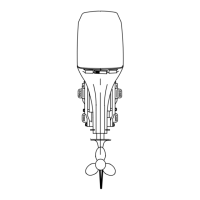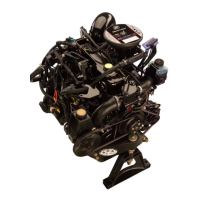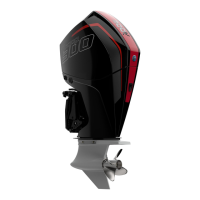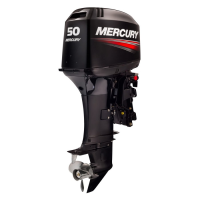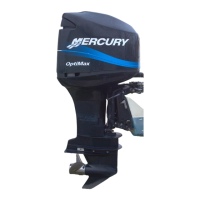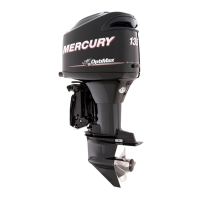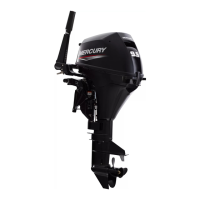90-826148R2 MARCH 19971C-4 - IMPORTANT INFORMATION
Submerged Engine (Fresh Water)
(Plus Special Instructions)
1. Recover engine as quickly as possible.
2. Remove cowling.
3. Flush exterior of outboard with fresh water to re-
move mud, weeds, etc. DO NOT attempt to start
engine if sand has entered powerhead, as pow-
erhead will be severely damaged. Disassemble
powerhead if necessary to clean components.
4. Remove spark plugs and get as much water as
possible out of powerhead. Most water can be
eliminatedby placing engine in a horizontalposi-
tion(withsparkplugholesdown) and rotatingfly-
wheel.
5. Pour alcohol into carburetor throats (alcohol will
absorbed water). Again rotate flywheel.
6. Turnengineoverandpouralcoholintosparkplug
openings and rotate flywheel.
7. Turn engine over (place spark plug openings
down) and pour engine oil into throat of carbure-
tors while rotating flywheel to distribute oil
throughout crankcase.
8. Again turn engine over and pour approximately
one teaspoon of engine oil into each spark plug
opening. Again rotate flywheel to distribute oil in
cylinders.
9. Remove and clean carburetors and fuel pump
assembly.
10. Dry all wiring and electrical components using
compressed air.
11. Disassembletheenginestartermotoranddrythe
brush contacts, armature and other corrodible
parts.
12. Reinstallsparkplugs,carburetorsandfuelpump.
13. Attempttostartengine,usingafreshfuelsource.
If engine starts, it should be run for at least one
hour to eliminate any water in engine.
14. If engine fails to start, determine cause (fuel,
electrical or mechanical). Engine should be run
within 2 hours after recovery of outboard from
water, or serious internal damage may occur. If
unabletostartengine inthisperiod,disassemble
engine and clean all parts. Apply oil as soon as
possible.
Propeller Selection
For in-depth information on marine propellers and
boatperformance-writtenbymarineengineers-see
your Authorized Dealer for the illustrated “What You
ShouldKnowAboutQuicksilverPropellers...and
Boat Performance Information” (Part No.
90-86144).
Forbestallaroundperformancefrom your outboard/
boat combination, select a propeller that allows the
engine to operate in the upper half of the recom-
mendedfullthrottleRPMrangewiththeboatnormal-
ly loaded (refer to Specifications). This RPM range
allowsforbetteraccelerationwhilemaintainingmaxi-
mum boat speed.
If changing conditions causethe RPMto dropbelow
the recommended range (such as warmer, morehu-
mid weather, operation at higher elevations, in-
creased boat load or a dirty boat bottom/gear case)
a propeller change or cleaning may be required to
maintainperformanceandensuretheoutboard’sdu-
rability.
Check full-throttle RPM using an accurate tachome-
ter with the engine trimmed out to a balanced-steer-
ingcondition (steeringeffortequalin bothdirections)
without causing the propeller to “break loose”.
Refer to “Quicksilver Accessory Guide” for a com-
plete list of available propellers.
1. Selecta propellerthat willallow theengine toop-
erate at or near the top of the recommended full
throttle RPM range (listed in “Specifications,”
preceding) with a normal load. Maximum engine
speed (RPM) for propeller selection exists when
boat speed is maximum and trim is minimum for
that speed. (High RPM, caused by an excessive
trimangle,shouldnotbeusedindeterminingcor-
rectpropeller.)Normally,thereisa150-350RPM
change between propeller pitches.
2. If full throttle operation is below the recom-
mended range, the propeller MUST BE changed
to one with a lower pitch to prevent loss of per-
formance and possible engine damage.
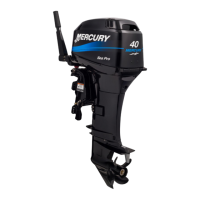
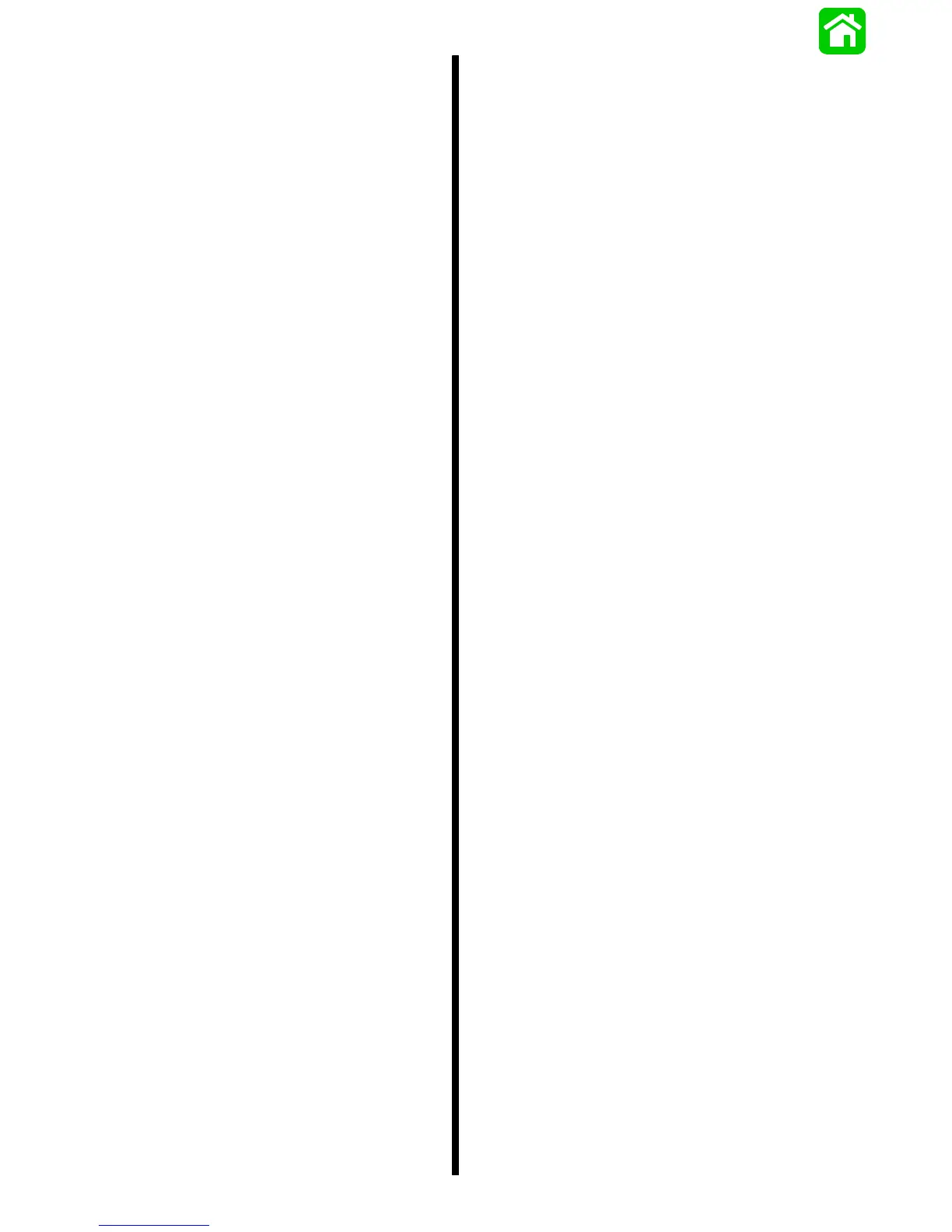